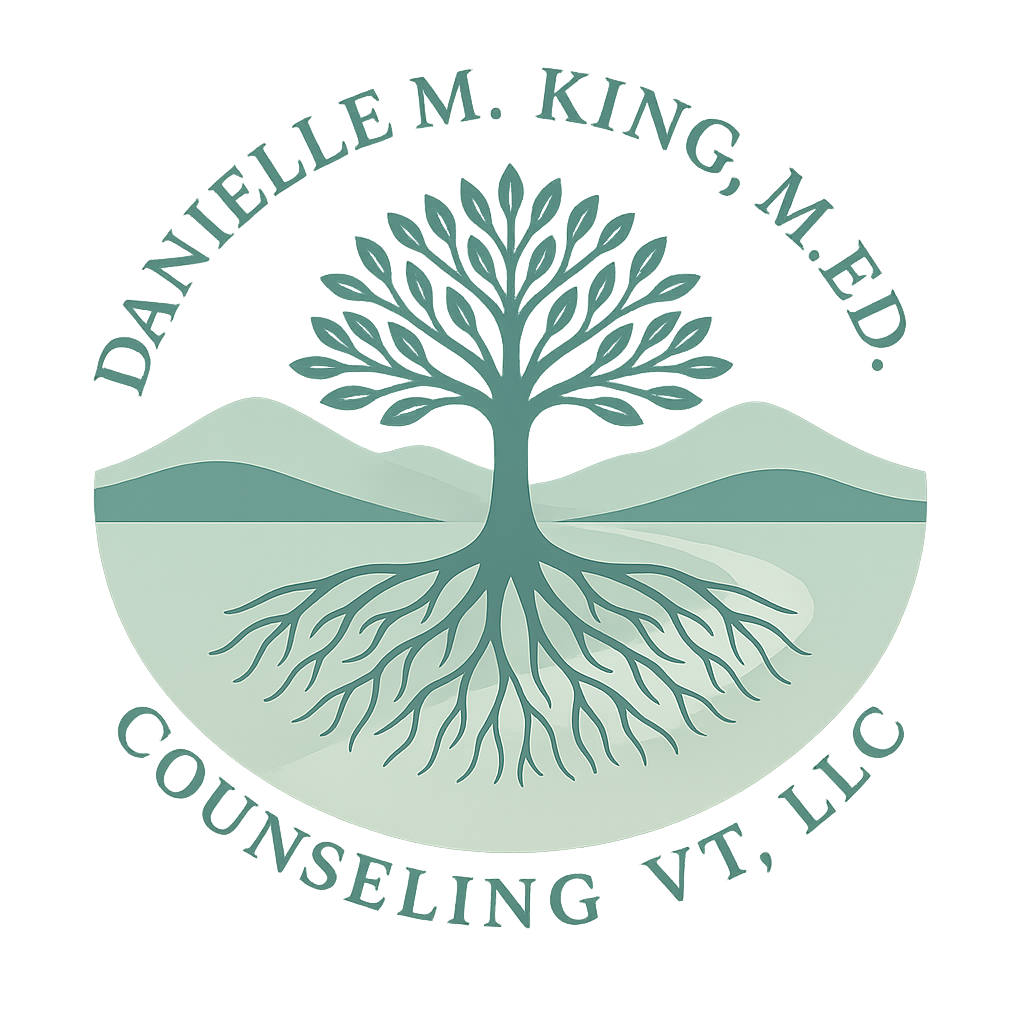To the Parent Who Yells More Than They Want To (But Loves Their Kids Fiercely)
By Danielle King, M.Ed. Counseling VT, LLC
Dear parent,
You love your kids. That’s never been the question.
You would do anything for them—sacrifice sleep, sanity, and time to yourself; read parenting books at 2 a.m.; pour yourself into creating a better childhood than the one you had.
You’re not checked out. You’re all in. And yet—sometimes you yell. Maybe more than you’d like to admit…
Maybe in the mornings when no one is listening.
Maybe when the house is loud and the messes are everywhere and your body is buzzing with urgency.
Maybe when your kids push back and push back and you feel like you’re going to come undone.
And then comes the guilt. The tight throat. The “I shouldn’t have yelled” spiral.
If this is you, I want you to hear something that might be hard to believe:
You are not a bad parent. You’re a human one.
Why We Yell (Even When We Know Better)
Yelling doesn’t come from a lack of love—it comes from overwhelm.
When you’re stretched thin, touched out, or trying to hold everything together while small people unravel it in real-time, your nervous system does what it knows: it reacts.
Yelling is often a signal that a protective part of you has taken over—one that’s trying (desperately!) to restore control, to be heard, to stop the chaos.
That part isn’t trying to hurt your children. It’s trying to manage your own rising sense of panic, helplessness, or exhaustion.
You likely have parts that carry wounds from your own childhood—parts that weren’t soothed, heard, or protected. And now, when your children cry, yell, or resist… those parts might feel threatened all over again.
You’re not yelling because you’re cruel.
You’re yelling because something inside you is overwhelmed and doesn’t yet feel safe.
What Your Children Need Isn’t Perfection—It’s
Repair
Every parent yells sometimes. What matters most is what happens next.
Repair might sound like:
“I’m sorry I yelled. You didn’t deserve that.”
“I was feeling really overwhelmed. That’s not your fault.”
“Can we try again? I want to do better next time.”
These small, honest moments teach children:
Grownups mess up and take responsibility
Emotions aren’t dangerous
Relationships can survive hard moments
Every repair is a thread that strengthens connection—and models resilience.
What You Deserve, Too
You deserve support. Not just strategies. Real support. Someone to hold your story, witness your struggles, and remind you: your needs matter, too.
You deserve rest—not just in theory. You deserve breaks, boundaries, and care that isn’t contingent on how well your kids are behaving.
And you deserve to know:
You are more than your hardest moments
Your love for your children is still visible
You can learn new ways of responding—with gentleness toward yourself, too
If You Want to Yell Less…
Try starting here:
Notice the early signs that you’re about to lose it—tight chest, fast breathing, clenched jaw.
Name your feelings out loud (“I’m feeling overwhelmed”)—this helps your brain shift out of reaction mode.
Get curious about the part of you that wants to yell. What’s it afraid might happen if you don’t?
This isn’t about perfection—it’s about Self-led parenting, where you respond from your calmest, clearest, most connected self as often as you can… and repair when you can’t.
Final Thoughts
If you’re parenting with your whole heart and still yelling more than you want to, you’re not alone—and you’re not broken.
You’re likely carrying too much. And the good news is: you don’t have to carry it alone.
Therapy can help you slow down, sort through the noise, and meet the parts of you that are trying so hard to be a perfect parent. Together, we can create space for more calm, more clarity, and more compassion—toward your kids, and toward yourself.
Your children don’t need you to be perfect. They need you to keep showing up—and you are.
Danielle M. King, M.Ed.
